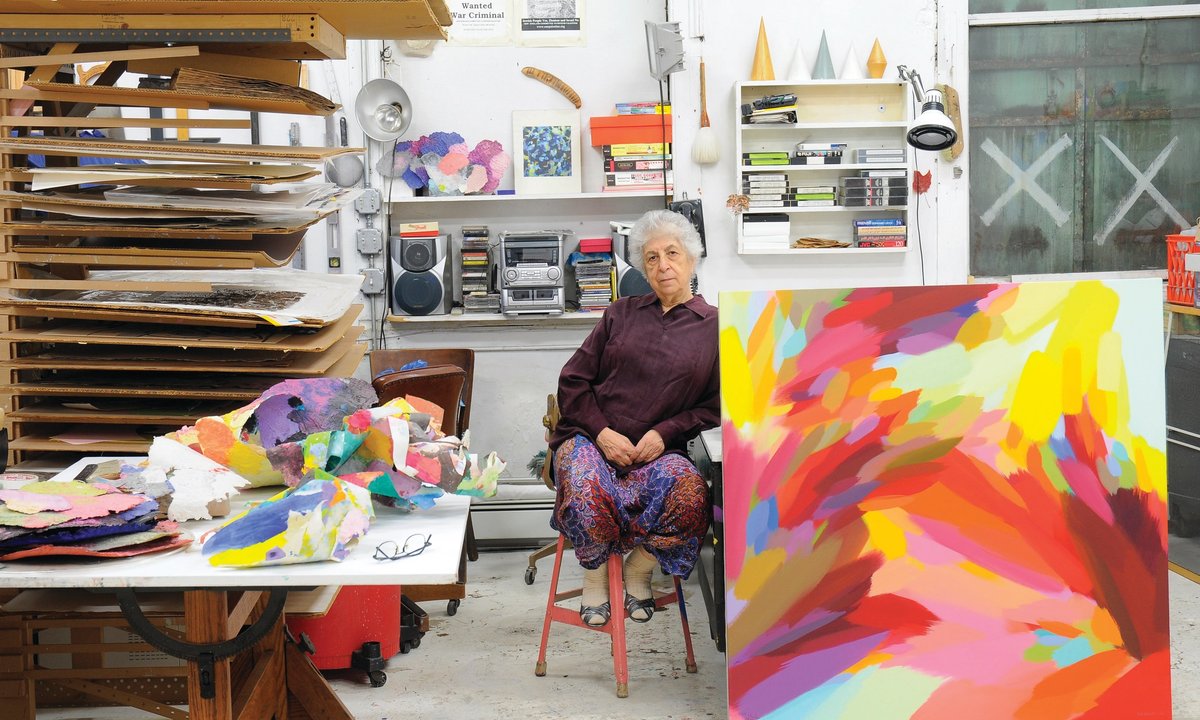
""I promote optimism," says the US-based Palestinian artist Samia Halaby, who is showing on the Sfeir-Semler Gallery stand at Frieze Masters, "especially for young people: Palestinians or Westerners or American youth of Latin origin who are undergoing terrorising conditions that can really derail the heart's ambitions." Halaby, whose solo stand is in the Studio section of the fair, hit the headlines last year when her retrospective at the Indiana University at Bloomington's Eskenazi Museum of Art was abruptly cancelled."
"According to The New York Times, "the director informed [the artist] that employees had shared concern about her social media posts on the Israel-Gaza war, where she had expressed support for Palestinian causes and outrage at the violence in the Middle East." In response to the cancellation, Madison Gordon, the artist's grandniece and trustee of her foundation, launched a petition that had more than 15,000 signatures asking for the show to be reinstated."
"The gallery director and founder Andrée Sfeir-Semler notes that the ensuing response to the cancellation was "enormous" and that the gallery has had enquiries about Halaby's work "every day". But, she adds, "we want to protect the paintings to place them in museums. And museums are slower than private collectors." In recent years, Halaby's work has often wildly surpassed its high estimates at auction and been acquired by major institutions."
Samia Halaby promotes optimism for young people facing terrorising conditions that can derail ambitions. Her solo stand appears in the Studio section at Frieze Masters. A retrospective at Indiana University's Eskenazi Museum of Art was abruptly cancelled after employees raised concerns about her social media posts on the Israel-Gaza war, where she expressed support for Palestinian causes and outrage at Middle East violence. Madison Gordon, her grandniece and foundation trustee, launched a petition that gathered more than 15,000 signatures seeking reinstatement. The gallery reported an enormous response with daily enquiries and emphasized protecting the paintings to place them in museums, noting museums move slower than private collectors. Halaby frames the cancellation as one visible event among many daily invisible events in her life and focuses on understanding why such things happen.
Read at The Art Newspaper - International art news and events
Unable to calculate read time
Collection
[
|
...
]